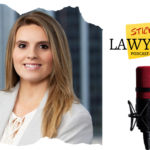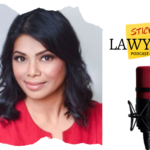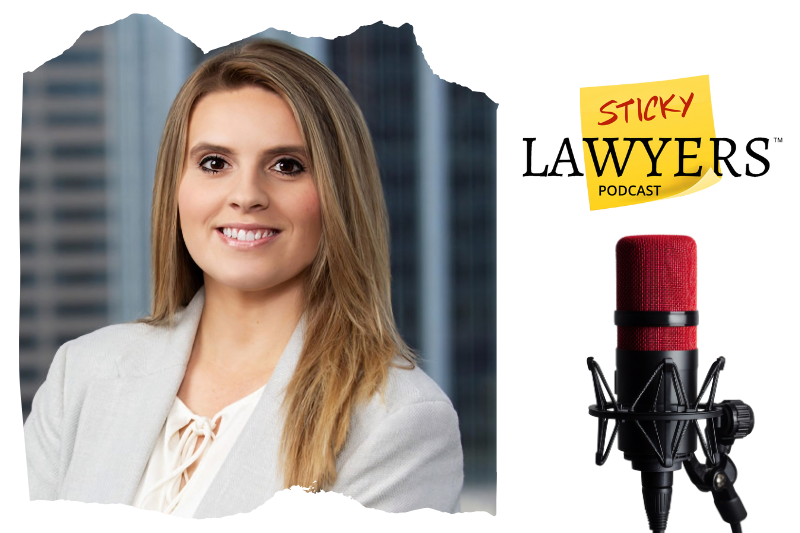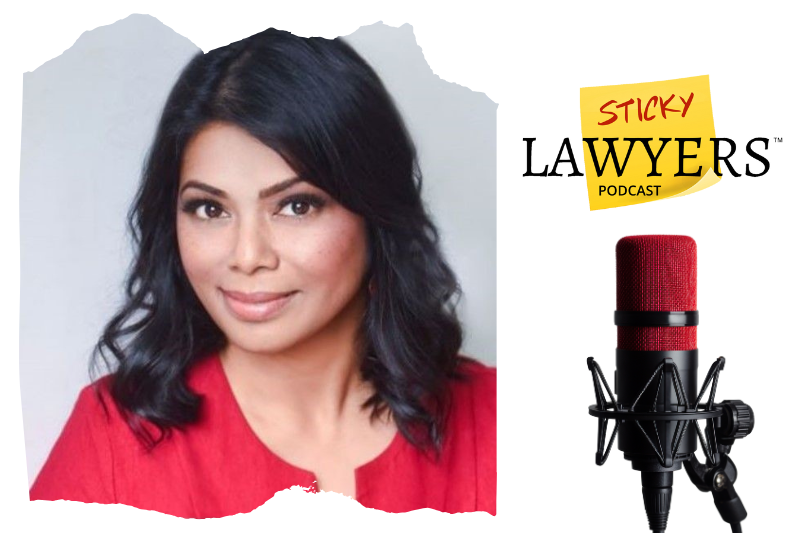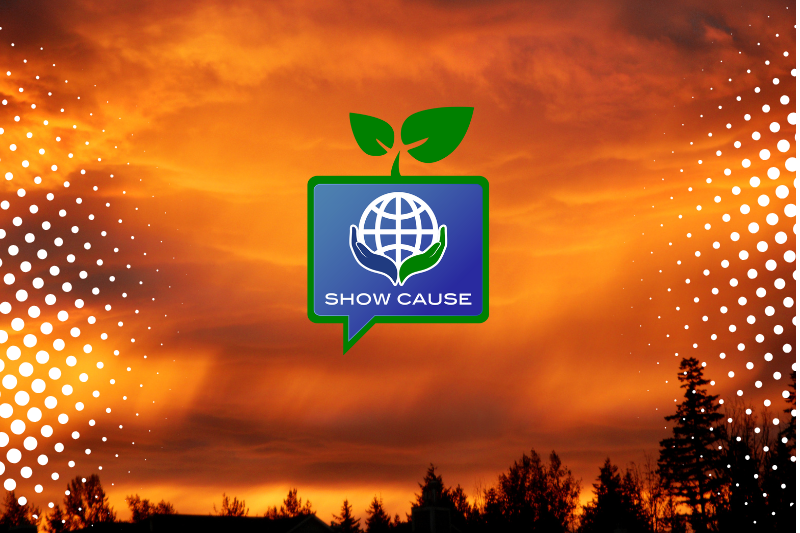In the News
A Corporate Attorney Driven to Expand Food Insecurity Awareness
By John Reed | 06.08.2021
There is no shortage of social causes that need support. But how deeply do we understand the issues that affect so many, and how do we determine which feet-on-the-ground organizations to support when we do?
When it comes to food insecurity, Tyrone Thomas invites you to a conversation. A Conversation for Six, to be exact.
Tyrone shares how growing up in Philadelphia and interning as an urban planning undergrad opened his eyes and heart to the plight of the country’s food insecure.
As an established attorney, he used his own capital to start a nonprofit with a mission to educate people about this human rights epidemic, so people can get knowledgeable enough about an aspect of food insecurity to act and become advocates.
Listen in as Tyrone discusses the food insecurity issues we face and his innovative approach to raising awareness for the cause.
Guest Insights
- What is food insecurity? [02:25]
- Moderate food insecurity affects a lot of US kids. [03:48]
- Tyrone’s early experience with food insecurity. [05:24]
- An interest in law sparked by a Legal Explorer’s program at age 16. [07:10]
- Choosing an urban studies major in undergrad. [08:38]
- Starting out in a real estate practice group at DLA Piper in Washington, DC. [10:02]
- “Build it yourself” attitude. [11:02]
- Using his capital to find effective people to run his nonprofit. [12:44]
- How to get more people involved in eradicating food insecurity. [14:30]
- Fighting hunger has a marketing problem. [16:25]
- Why “Conversation for Six”? [17:52]
- Stories that highlight food insecurity solutions. [21:14]
- Tyrone’s day job at Invenergy. [23:58]
- Scheduling family time first. [25:38]
- Using efficiency to structure a non-profit. [25:57]
- Raising children to ask questions and have empathy. [27:49]
- Encouraging people to do something, anything, to help others. [30:31]
Transcript
John: [00:00:00] Let me ask you a question. Is there a particular social cause you support either with your time or money? How did that cause become important to you? Did you live it, observe it firsthand, or become moved from afar?
[00:00:16] These days we are inundated with requests for philanthropy. Emotional pleas are meant to stir our souls – some are more truthful than others. But I ask you, and no judgment here, what do you really know about the causes you support?
[00:00:31] Lawyers love Latin. So, here’s a phrase for you. Scientia potentia este – knowledge is power. But thanks to Google, I think these phrases are more poignant: cognitio agere – knowledge is the power to act – and colloquium potentes – conversations are powerful.
[00:00:54] Today’s conversation is with a lawyer championing the fight against food insecurity. Far more than just being hungry, food insecurity is defined as a lack of consistent access to enough food for every person in a household to live an active, healthy life. That’s pretty complex, both for those in need of food and those wanting to help. Where do you start?
[00:01:19] Cognitio agere. Knowledge is the power to act.
[00:01:25] I’m John Reed. And this is Sticky Lawyers, a podcast featuring conversations with attorneys who differentiate themselves by what they do in and outside the practice of law and through the relationships they build.
[00:01:38] Tyrone Thomas possesses encyclopedic knowledge of food insecurity, but he’s no academic. He’s a warrior, and weapons are his words. He founded a Conversation for Six, a website to educate people – me and you – about this human rights epidemic, so that we get knowledgeable enough about an aspect of food insecurity that causes us to act and become advocates.
[00:02:03] That website is also a resource directing people needing food support to a wide range of service organizations.
[00:02:10] Tyrone. It is both an honor, and a pleasure to talk with you today. Thanks for being here.
Tyrone: [00:02:18] Thanks for having me, John. I appreciate it.
John: [00:02:06] Let’s lay the foundation for our community of listeners. Paint a picture of food insecurity in the U.S. today.
Tyrone: [00:02:25] Food insecurity is most often thought about as the type of hunger you would see on a commercial in the 90s where you’d be asked to sponsor a child for the price of a cup of coffee. But it actually takes on a variety of different forms and in the US is slightly more complex in a way that allows it to be unseen. And so, the idea of food insecurity is the lack of consistent access to enough food for a healthy well balanced diet. I’m paraphrasing. And so, folks who are only able to eat, let’s say Twinkies all day, and I’m exaggerating here would be food insecure in a way, because that’s not a healthy, well-balanced diet that they would need to live a healthy, active life.
[00:03:11] And just as folks who aren’t able to get enough to eat three square meals a day, to borrow the USDA’s terminology, food insecure. So, you have a range. You have people who are very food insecure, you have people who are moderately food insecure, and then you have the food secure.
[00:03:28] The people who are severely food insecure or those who, you know, we often talk about when we talk about hunger, we talk about the unhoused. We talk about the severely impoverished. And we talk about people who you oftentimes can look at and see that they’re severely food insecure based on, oftentimes, malnourishment.
[00:03:48] When we’re talking about moderate food insecurity, that’s where it gets a little tricky, and that’s where it gets a little hard to understand. There’s a significant number of children in the U S who are moderately food insecure. This is where meal skipping is probably very common, but you’re going to get a significant number of the 21 meals per week that you will get, but you’re not going to get all 21. You’re probably only going to get an average of 21 a week.
[00:04:11] That obviously has an effect on developing minds. That has an effect on developing bodies. That has an effect on the adults as well in terms of the pull on a lot of their mental and physical energy and their economic resources. Focusing on just getting that foundation every day, there’s not a lot left for other things.
[00:04:29] I grew up in a community where a lot of folks were just on the other side of the economic threshold. And so, they didn’t qualify. Or some people who were working full time and for prideful reasons didn’t want to partake in some of those benefits but didn’t really have enough money to make sure that there was always enough food. That bucket of the moderately food insecure is one that I think is oftentimes underestimated casually, because it’s harder to see.
John: [00:04:53] What I’ve learned, particularly through you, is food insecurity has so many more tentacles associated with it. Because it’s food sources, it’s developing minds. It has employment consequences to it. It’s economics and it’s food, but it’s so much more than that. I know I was, dare I say, ignorant about it so I’ve learned a lot just because of the resources you provided me.
[00:05:18] What was your earliest experience with food insecurity?
Tyrone: [00:05:24] So I had very early experiences. I can’t pinpoint the exact age, but the interesting thing is I didn’t come to understand those as food insecurity until I was much older. My parents divorced in 1989, and my mother was the sole caregiver for myself and my two older sisters. We grew up in West Philadelphia. My mother is a child psychologist who works primarily in the nonprofit sector, which are not the most well-paying jobs. Budgets were tight, and there were times where we knew that we always had enough to eat, but that she would skip meals and do other things and cut other corners for ourselves so that we did. The reason why I think I never put, I was ever able to put a fine point on it as a child is because we were not the poorest family in a middle-class or upper middle-class neighborhood. Quite the opposite. We were in a working class enclave that was surrounded by a much more lower-class neighborhood. And so, we got to witness people who were much more food insecure in a very visible way.
[00:06:33] We oftentimes individually or through community organizations or through our church, we were oftentimes gathering cans and doing food drives for those other neighborhoods. So, you didn’t really get it until you start to look at and think about the definitions and think about where the baseline should be for everyone. And then you realize, oh wait, I was on the wrong side of that baseline, but I was arguably barely on the wrong side of that baseline. Throughout my entire childhood, I experienced it, but I didn’t really understand it until I got older.
John: [00:07:03] Let’s go in a different direction for just a moment. When did you first determine you wanted to be a lawyer?
Tyrone: [00:07:10] I was 16 years old. I participated in a program called Legal Explorers. There was a Police Explorers, Fire Explorers, Legal Explorers, and Medical Explorers program that were being offered to children in the Philadelphia Metro area. I was chosen along with a variety of other students who I didn’t know. In our particular cohort, we were assigned to the now broken up firm Ballard, Spahr, Andrews, and Ingersoll. And we would go there, I think once a week, and sit in a giant boardroom and the lawyers at the firm who were participating in the program would talk to us about the law.
[00:07:46] I don’t know whether it was a metric of the program or not, but everyone involved were all minority students. I think we were all from working class or lower class backgrounds and seeing these high powered corporate attorneys was very enticing. We did mock arguments, moot court competitions. We got to sit in on trials. We got to learn a little bit about what they do, again at the level you can at 16.
John: [00:08:10] That’s more than a lot of second year law students, so don’t sell that short.
Tyrone: [00:08:14] Yeah, no, I wholeheartedly agree. And so, at that point, I wasn’t set on doing something else. I said I think this is what I want to do. So, I want to finish high school. I want to go to college. I want to do my four years. I want to go straight to law school when I come out and I want to work at a big firm like this. That was the goal.
John: [00:08:31] What’s interesting is a lot of future lawyers major in poli sci, philosophy, history, English. What was your major?
Tyrone: [00:08:40] I was an urban studies major. And I am so happy that I did that. I thought poli sci as well and I had a number of lawyers along the way tell me to not do that. And tell me that it’s not a prerequisite for law school. It’s not really going to help you in law school. It’s not gonna help you in most careers in law. And that I should pick something that I’m interested in. It’s something that’s almost further from that to make me a more well-rounded person as I come out of law school. Urban studies really drew me to it because there is an urban planning element if you get to the master’s level, but there’s also specific, just a civics element to it. There’s a civic engagement element.
[00:09:22] We had to do internships with government offices or agencies. So I interned in New York state Senator Liz Krueger’s office for a year, which was amazing. For me, it was just something that was very interesting and it was very hands-on. You could not finish your major without doing an internship and doing certain other things. It was a very hands-on program of getting you into the nitty gritty of New York city government where I was going to school and that was invaluable, I think.
John: [00:09:46] You took something that was instead of political science, you did political application. You were out there finding how the systems work. I’m all for rolling up your sleeves and getting hands-on education. And it’s good that you had that experience. That’s great.
[00:09:59] What was your career path after law school?
Tyrone: [00:10:02] So I did go to a very large law firm right after law school. I started at DLA Piper in Washington, DC, in the real estate group. It was hard. It was a wake-up call, like I’m sure you’ve heard from many attorneys where you don’t really have an understanding from law school, of what to expect. It was amazing training. There was a lot of rigor. There was space for that rigor in the way that you don’t see at certain smaller shops. It gave me a good foundation for moving forward in my career.
John: [00:10:31] Of course I have to ask. We started off on a different note here. When did it occur to you to combine your talents and your resources as a lawyer with your interest – your passion – about food insecurity?
Tyrone: [00:10:46] Some years ago, it wound up on this list of muses, we’ll call them, that I want to pursue. It’s been helpful to just kind of externalize those thoughts, put them on a list and then you can decide whether there’s time to execute on them. I always joke, every once in a while, when I have this conversation, um, as you can see, I’m a black man, right? And I spent the early part of my life on the lower end of the socioeconomic ladder.
John: [00:11:17] Let me just confirm that this is a podcast and for those listening, Tyrone is black. Okay, continue.
Tyrone: [00:11:24] Those two characteristics in our country in this time do not generally inure to your benefit and they make things harder. And there are people who will make things harder who will make assumptions, but there are systems that are harder for people with those two characteristics.
[00:11:41] One of the things that I observed and that I hope rubbed a little bit off on me from the people who were mentors early in my life was that sometimes you have to build it yourself. There’s all these speeches and sayings about, you know, if you don’t get a seat at the table, bring a folding chair or build your own table. That’s my default in many circumstances is to build it myself. And I know these days, probably there are people who would be willing to build it with me, but I think by building a lot of things myself, I’ve been able to give myself a significant amount of experience in kind of understanding the platonic form of what I do. Now at this stage, in my career I wouldn’t trade it for anything.
John: [00:12:21] So you got your legal chops, you got great experience. Why not take what you’ve learned in law school, the rigor that you went through in the Big Law experience, and go into public interest law and devote yourself to this cause? Why not just go run that nonprofit or get on to that nonprofit as the general counsel or whatever else and run that?
Tyrone: [00:12:44] I think it’s okay to have a diverse array of interests as long as you can fit them all together and they don’t conflict with one another. I also think in terms of temporal and economic efficiency, that probably isn’t the best thing for this nonprofit. I am a much better engine of economic generation doing what I’m doing and using a little bit of that capital to find folks who are incredibly effective and efficient at doing the things that I need for this nonprofit and to put them in play. I can take a little bit of whatever wealth I’ve created, whatever Goodwill I’ve created, whatever connections that I might have, and leverage them to get people in who can do that work. I can guide the vision. And to help get more funds in that are for that work. I’ve been funding it myself thus far, and I’m comfortable continuing to do that, but in order to grow, I think we do need to diversify the funding sources. I can do that a lot easier from the outside than I can from the inside.
John: [00:13:51] Makes sense. You may have the legal knowledge and the drive, but sometimes you need the cash to actually make the wheels turn. I think that’s a really impressive approach to the whole thing. Let’s get to it. Tell us about A Conversation For Six and how you got there.
Tyrone: [00:14:06] Sure. So, the idea I mentioned, this idea that’s been rolling around in my head and it’s been on my list for some time is, how do I lower the barrier to entry for the hunger space and for the fight to eradicate hunger? It’s such a critical, fundamental need; food security for everyone. And the food insecurity epidemic is really a human rights epidemic. There are a ton of organizations doing amazing work in what I would call the direct action space, right? They’re directly serving people who are food insecure. But when I try to evangelize casually to people I interact with, one of the things that I keep running into is this refrain that it’s confusing. That they have gone to X or Y organization’s website, or they dialed into some webinar and what they heard were a lot of acronyms for programs and government agencies that work on food security that were undefined or underdefined and a lot of academic concepts within the hunger space that were also undefined or underdefined.
[00:15:15] It’s like listening to a foreign language, right? We start to turn off. Some of us will start to jot all those things down if were’ really, really passionate about it, and then go learn. But if we only focus our efforts on converting the most diehard people, we lose out on a very, very large segment of the population who could potentially really help the organization move forward.
John: [00:15:39] Well, it sounds like it’s kind of a, for lack of a better term, binary transaction. I know that for organizations I’ve come across, where I’m asked to attend a webinar or fundraiser, or even just directed to their website, I’m either taken by and moved by, and it makes sense for me to want to support it or it isn’t. And sometimes that turns one off to the entire cause.
[00:16:07] What I find fascinating is you’re trying to educate without endorsing. You assume people are smart, quite frankly, which I think is noble these days. “Let me give people information. People are smart, let them process it, let them act.”
Tyrone: [00:16:24] Yeah, that’s really it. If I could boil it down, I think that there is no lack of passion within the fight to eradicate hunger, but at times – and this is by no means universal – at times, there can be a marketing problem. What A Conversation for Six is, it’s really helping with that marketing problem. We are translating in some ways and through definitions and through explication of some of the fundamental concepts, some of the building blocks, we are translating a lot of the copy that’s coming out of certain other members in the anti-hunger community for a broader audience.
[00:17:03] I’m just trying to create this G league, if you will. Bring people in, help them understand exactly what’s going on, and to your point, make a decision as to whether or not they want to see more. Whether or not they want to, you know, click on some of our resources and go to some of these direct action sites, whether they want to donate, whether they want to volunteer. Or if there’s someone who needs help and doesn’t know that there are so many resources available to them and we want to bring them in and give them that information in a way that is accessible, in a way that is not dumbed down, but it allows for the possibility that they need some foundational information before going forward.
[00:17:41] They need to know about WIC or TANF or the SNAP program, or what grants exist for rooftop gardening. And then they can go, and they can seek more.
[00:17:52] The idea of this unserious presentation came from The Art of Eating by M.F.K. Fisher. And it’s definitely one of my favorite books, one of the ones that’s always sitting on the bookshelf and there’s a quote that I’ve always loved.
[00:18:08] “The perfect dinner party can be achieved with six people. Usually six people act as whets, or goads, in this byplay and make the whole dining experience more casual if perhaps less significant.” And there’s a discussion about how it looks with two people and how it looks with a larger amount of people and the idea that larger amounts of people, if you can envision this large table, will break off into subgroups. It kept popping into my head, as I was thinking about what we’re trying to do here and how we want to explain it, which is where the name of “Conversation for Six” came from. That’s exactly what we want to do. We want to have that six person dinner party, where it is not the two person, incredibly serious conversation, but it’s not such a large affair that people who are not the most ebullient just get lost in the fray.
[00:18:49] Everyone is engaged. Everyone’s pulled in. Everyone is allowed to participate in and invited to decide if they want to become a die hard, a warrior in the fight against hunger – hunger advocate I think it’s the term a lot of people love to use – or if they want to just donate once or they want to just read a little bit more or volunteer once. I think if you can get enough people to be a casual supporter of these direct action efforts, that’s going to buoy the entire infrastructure.
John: [00:19:19] A Conversation for Six, you know, it’s not elitist. It’s not tone-deaf. In a way, the conversation is made better because you’re inviting those who may be in a position to help with those who need the help. And isn’t that a powerful conversation to have and done through carefully written content and the resources shared on your website?
[00:19:40] Let’s take a short break. And when we return, we’ll learn more about Tyrone’s information war against food insecurity, as well as his day job.
John: [00:20:44] We’re back with Tyrone Thomas.
[00:20:46] As an information junkie and content creator, A Conversation for Six really speaks to me. There’s genius in taking a broad educational approach to help your readers identify an insular aspect of food insecurity that speaks to them. But I also believe that stories tend to resonate more than facts. So, tell us about some of the stories that you’re sharing on conversationforsix.com.
Tyrone: [00:21:13] I think that’s a great question. The information that we’re presenting comes in, I would say, three flavors. The first are an explication of a foundational concept. One thing. Here’s what this program is. Here’s what the USDA food plans are.
John: [00:21:29] So it’s just straight-out information.
Tyrone: [00:21:32] Yeah. The next is getting closer to what I was mentioning. Some people were having trouble engaging with other sources. And now we’re talking about an actual issue, but you have this foundational concept. And so, it all makes sense. So, for example, there’s one that’s coming out that’s talking about the school lunch programs and what happens when some students can’t pay, and you’ve seen these articles all over the place about schools “lunch shaming” students when they can’t pay the outstanding bill.
[00:22:00] And then the third category, which is one that we’re building out right now, is highlights, highlights of either organizations in the hunger space, organizations that are not in the hunger space that are trying to help in some way, and then individuals. Not individuals who are donating, you know, a million dollars or $20 million, even though that is incredibly valuable to the fight to eradicate hunger. But people who are doing something that can be seen as much more accessible. People who are just starting up a can drive.
[00:22:29] People who are helping leverage the skills that they have in their day job to help some organization pivot during COVID like Jan Dubin did with Milk Made, seeing articles that farmers were dumping milk down the drain at the beginning of the pandemic. And she realized that people needed that milk. And so, she was able to make those connections and help get alongside a grant from the Trotter Foundation, to get that milk purchased from those farmers so they’re getting that income and then given to people who need it, who needed the food and get it packaged with pre-existing efforts to get food packages to people in the Chicago land area.
[00:23:05] Natalie Thomas, who’s been doing missions with her church and who’s done a lot of food work in the Philadelphia area. The Right Spice Company who was sponsoring a nonprofit during the pandemic and donating their profits there. Beyond Hunger, which I happen to be on the board of, which is a food pantry and so much more in the Chicagoland area.
[00:23:28] We want to highlight those organizations. We want to highlight organizations you can work with, but also people who are doing things, not so dissimilar to what I’m trying to do here. To say it’s not as insurmountable a challenge you think it is. You can get out and you can get involved at whatever level you feel comfortable.
John: [00:23:47] You told us that your job is a means to fund and capitalize your advocacy efforts and ventures. What is it that you do for a living?
Tyrone: [00:23:58] So my official title, I’m the vice president and deputy general counsel at Invenergy, which is a global leader in sustainable energy solutions. And so, both of those things to the uninitiated might need some unpacking. I’m an in-house lawyer and I work on a variety of things, but I lead our real estate efforts, permitting, special projects, and non-attorney staff. I work on some of our legal operations and a variety of other things in our internal legal team.
[00:24:27] The company I work for is best known as a company that builds, owns, operates utility scale energy generation and storage facilities around the world. So, wind farms, solar farms, natural gas fired thermal facilities, energy storage facilities, primarily battery storage at this stage, and then some cogeneration facilities where energy can be harnessed as being generated through some mechanical, oftentimes industrial process.
[00:24:54] We’re always trying to push the envelope to figure out what else can be done in a way that is both value accretive to the local communities, but also helps both obviously our world and our ecosystem, but helps the grid, I guess, for lack of a simpler term, be more resilient. Because we all know there’s a lot of challenges there.
John: [00:25:16] So let me get this straight. By day, you’re saving the planet and by night you’re fighting ignorance and enlisting people to fight food insecurity. Now, the other thing I can tell people who are just listening, I don’t see a cape, but it sounds like there should be. You should pull off a pair of glasses and turn into this superhero.
[00:25:34] Where is there time for family and for Tyrone in there?
Tyrone: [00:25:38] So, family is the first thing and everything else morphs around that. I’ve got three little boys, one, three, and five, and that’s paramount. And so that’s the first thing that sort of gets blocked off my schedule. I do schedule personal and family time because that that gets measured gets managed. And if I don’t, everything else creeps.
[00:25:57] I focus a lot on efficiency. I focus a lot on making the most efficient use of my time. So, in addition to trying to structure Conversation for Six, for example, as something that I really wanted to get out there in the world, I also thought a lot about what’s the time suck? How do I structure this in a way that makes the most sense for everyone involved, but does not turn into a full-time job? A lot of things that people join or they sign themselves up for are ultimately hampered by people not having a real conversation with whoever’s running the organization and themselves about what time they can give and whether or not that’s going to be effective.
[00:26:36] I hired a bunch of freelance writers for the site who are, a number of them are, people who were trying to write full-time and got waylaid by the pandemic. We brought them on board and there are other folks who have other careers but are really passionate about getting their writing off the ground as well. We have an editor who was in a similar space. These are all smart professional people, and we were able to put a structure in place that treats them like the smart professional adults they are. And therefore, it doesn’t require my micromanagement. I plug in where I need to plug in, and I delegate where I need to delegate, which is something I think any leader really should be doing, and that really allows me to bucket my time in a really, really effective way.
John: [00:27:20] One, three, and five. Well, first off, it’s pretty busy at your house, I’m sure. And maybe that’s a little too young, but what are the lessons that you and your wife are teaching your children vis-a-vis your professional life? I don’t know what your wife does necessarily. Oh, double lawyer family. What are those life lessons? Besides your biological DNA, what’s the other DNA that you’re trying to share and instill in them?
Tyrone: [00:27:49] We want them to ask questions. We want them to be skeptical of the answers they receive. And we want them to always think about coming back to the empathetic checklist, I guess, for lack of a better word. Ask the question, how does this make me feel? How does this make the other people feel?
[00:28:08] And there’s not necessarily a reason to do or not to do something. But I think being aware of that is really helpful. It’s challenging because little children will ask you fundamental questions that you’ve never thought about how to answer. I remember driving down the street with my oldest before the pandemic hit, and we saw a man sitting under a blanket on the sidewalk. And, you know, he had a sign. And my oldest said, “Daddy, what’s that man doing?” And I said, “He’s homeless.” And he said, “What does that mean?” I was like, “It means he doesn’t have a place to live.” And he’s like, “Well, Daddy, we have an extra room. He can come live with us.” And, you know, trying to respond to that without seeming flip or dismissive of that man’s humanity, and also not to just default to a space where, you know, I talk about safety and make him think that anyone who is unhoused is somehow deranged or out to get you. Those are all the things that are running through my head in that moment.
[00:29:07] But those are good conversations to have, right? Because they challenge the way we are confronting things. You know, we all know why that man can’t come live in my house, but why? We have these discussions around our kids, discussions about people who don’t have all the resources they need in one way or another. And the fact that those people always need grace. And if they are open to it, help. And we should be willing to help where we can.
John: [00:29:34] I wish you had said that to me 23 years ago – that’s my oldest son’s age. Because, I mean, it was beautifully stated. That was wonderful.
[00:29:43] You and the innovative and creative approach you’re taking to raise awareness about food insecurity are inspirational. And they’re aspirational too, because of what you want people to aspire to, whether they’re suffering or they’re in a position to help. And your achievement thus far is impressive. What’s next for you? What’s the next chapter in the life of Tyrone Thomas?
Tyrone: [00:30:12] I want to encourage more people to do something. Not to just do anything, because just acting without understanding the ecosystem and really thinking it through can oftentimes be more of a hindrance than help. But I want to encourage people to do something. I hear so many people who, on whose part I will assume benevolence, are saying, “I want to do something, but I don’t know what to do around racial injustice, around hunger, around inequity in healthcare around the world.” And what I want to do is I want to encourage people. It doesn’t have to be a lawyer or a doctor or anyone who’s particularly thought of as a knowledge worker. Anyone can do something. And I wanted to just encourage people to do that. But yeah, I’d love to just keep talking to folks about how they can help. What they want to do. Who they want to help and how they can do it, and break it down to its component parts.
[00:31:11] If the only thing that you can do is buy a 45 cent can of black beans from the grocery store and donate it, buy that can and donate it. Somebody will eat that can and without it, they won’t. And if you can buy hundreds of those cans, do that. If you’re at the store… we did this once… we were at the store and there was a weird sale on unexpired chickpeas at Costco. And so, we bought cases of it for incredibly cheap and took it to the local food pantry. And they were looking for beans. I want people to not think that there is any barrier to entry, to any help that they want to provide to anyone who needs help. You can donate some time if you can’t donate any money. If you can’t donate either of those things, you can maybe evangelize to other people who would donate money or donate time. But I want to just create more people who are doing. Whatever they can do. And we’re thinking creatively about how to do what they can do.
John: [00:32:07] Beautiful. I know you’ve said it more than a few times in this conversation, but what’s the name of the website?
Tyrone: [00:32:12] Conversation for Six – it’s www.conversationforsix.com, and on social media, we are CONVOFORSIX. That is across Facebook, LinkedIn, Twitter, and Instagram.
John: [00:32:29] You know, Tyrone, we call this podcast Sticky Lawyers. I think a lot of people listen to it thinking about how can I be better at my business? How can I be better at developing clients? How can I strengthen my personal marketing brand for purposes of my career? And what’s so refreshing for me is to meet somebody like you, who is sticky for what you do outside of your legal career. You couldn’t do it without your legal career, that’s for certain, but you are most certainly a sticky lawyer because of it. So, it’s been my privilege to have this conversation with you. Thanks for being on the program today. I really appreciate it.
Tyrone: [00:33:10] Thanks for having me. I cannot say how grateful I am.
